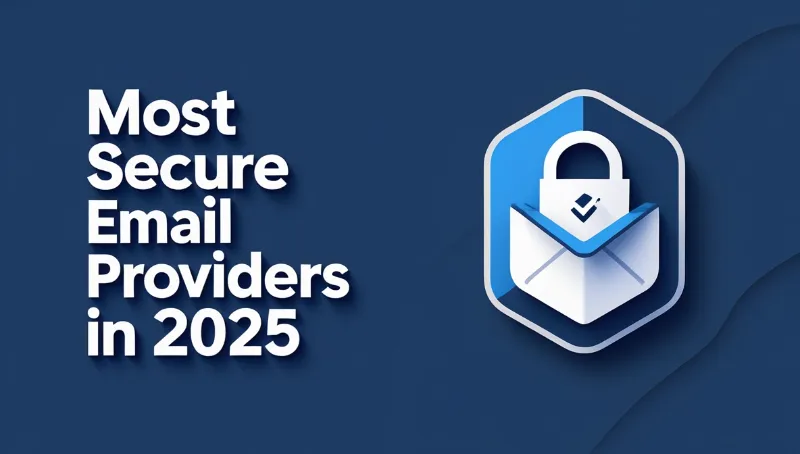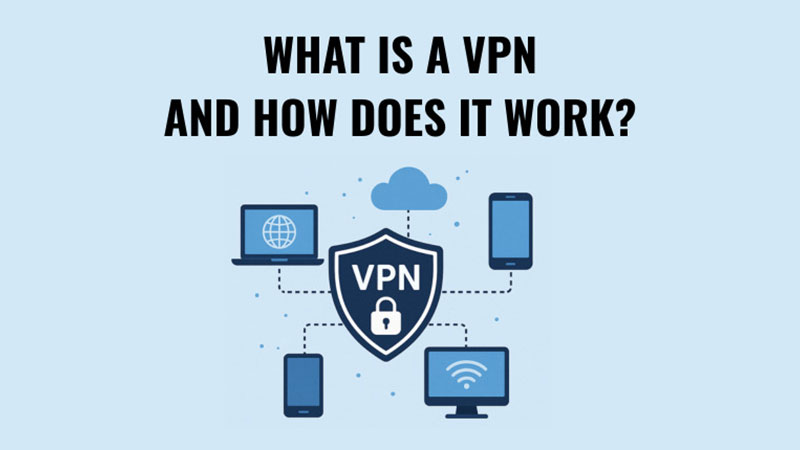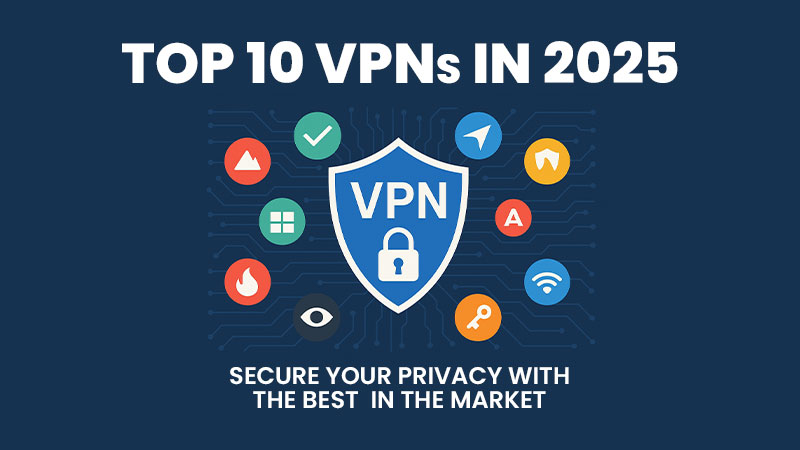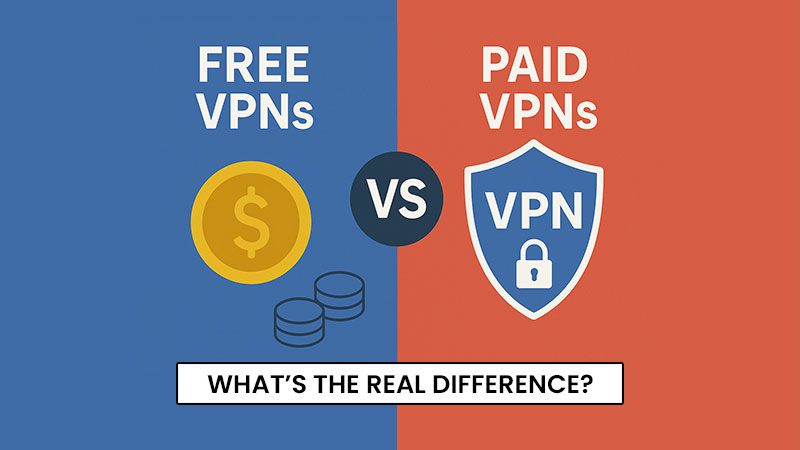In today’s digital era, email security has become more critical than ever. With increasing cyber threats, phishing attempts, government surveillance, and data breaches, choosing the right email provider is not just about convenience – it’s about safeguarding your digital identity. As we step into 2025, individuals and businesses alike are seeking the most secure email providers that prioritize encryption, privacy, and advanced security protocols. In this guide, we’ll explore the top secure email services of 2025, their unique features, and why they stand out in a crowded market.
Why Secure Email Providers Matter in 2025
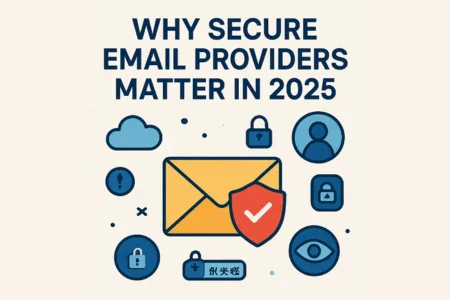
While free mainstream email services like Gmail, Yahoo, and Outlook dominate the market, they often prioritize advertising revenue over user privacy. These platforms typically scan your emails for targeted ads, store vast amounts of metadata, and are subject to government surveillance requests. In contrast, secure email providers are designed with end-to-end encryption, zero-access policies, and user anonymity at the core.
The benefits of choosing a secure email provider include:
- End-to-End Encryption: Ensures only the sender and recipient can read the email content.
- No Data Exploitation: Your data is never sold to advertisers.
- Jurisdictional Privacy: Providers based in privacy-friendly countries are less vulnerable to surveillance.
- Advanced Security Features: Two-factor authentication (2FA), zero-knowledge architecture, and encrypted storage.
In 2025, with rising concerns about AI-powered phishing scams, deepfake impersonation attempts, and stricter data protection laws worldwide, secure email providers are no longer optional – they are important in 2025
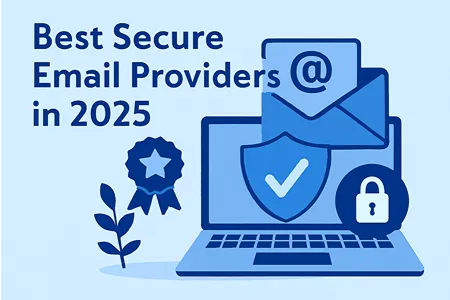
Below is a detailed breakdown of the best secure email services in 2025, based on encryption strength, usability, jurisdiction, and privacy policies.
Proton Mail – Best Overall Secure Email Provider
Headquarters: Switzerland
Key Features:
- End-to-end and zero-access encryption.
- Open-source cryptography.
- Proton Pass integration for password management.
- Calendar and VPN services included.
Why It’s Secure: Proton Mail remains one of the most trusted secure email services. Based in Switzerland, it benefits from strong privacy laws outside EU and US jurisdictions. Proton Mail uses PGP encryption and stores emails on zero-access encrypted servers. In 2025, Proton has expanded its ecosystem, offering seamless integration with Proton Drive and Proton VPN, making it the top choice for both individuals and enterprises.
Tutanota – Best for Encrypted Cloud Storage
Headquarters: Germany
Key Features:
- Automatic end-to-end encryption of emails, calendar, and contacts.
- Open-source transparency.
- Fully encrypted mailbox, including subject lines.
- Affordable plans for individuals and businesses.
Why It’s Secure: Tutanota is unique because it encrypts not only the email body but also subject lines and metadata. Based in Germany, it complies with GDPR standards, ensuring strict user data protection. In 2025, Tutanota also expanded its encrypted drive solution, making it ideal for privacy-conscious professionals who want secure communication and storage.
Skiff Mail – Best for Decentralized Communication
Headquarters: USA (but operates on decentralized infrastructure)
Key Features:
- End-to-end encrypted email, documents, and calendar.
- Blockchain-based storage for decentralization.
- Supports collaborative encrypted workspaces.
- Cross-platform compatibility with desktop and mobile apps.
Why It’s Secure: Skiff Mail is a Web3-inspired email provider that uses decentralized infrastructure to prevent data centralization risks. Unlike traditional providers, user data isn’t stored in a single server location. In 2025, Skiff Mail gained popularity among crypto communities and privacy advocates due to its blockchain-powered architecture, making it one of the most future-proof secure email solutions.
Mailfence – Best for Digital Signatures and PKI Support
Headquarters: Belgium
Key Features:
- End-to-end encryption with OpenPGP.
- Digital signature support for authenticity.
- Encrypted calendars, contacts, and file storage.
- Two-factor authentication.
Why It’s Secure: Mailfence combines traditional email features with advanced cryptography. Its support for digital signatures provides an extra layer of security, ensuring that recipients can verify the authenticity of emails. Located in Belgium, Mailfence complies with strict European data protection laws, making it an excellent option for businesses that require verifiable and secure communications.
StartMail – Best for Disposable Email Addresses
Headquarters: Netherlands
Key Features:
- One-click disposable email aliases.
- Full PGP encryption support.
- Private servers located in the Netherlands.
- No targeted ads or tracking.
Why It’s Secure: Created by the team behind Startpage (the private search engine), StartMail excels in disposable email functionality. Users can generate aliases to avoid spam and phishing attacks. Its strong encryption protocols and privacy-first policies make it one of the top email providers in 2025, especially for users who frequently sign up for online services but want to shield their real email addresses.
Posteo – Best for Anonymous Sign-Up
Headquarters: Germany
Key Features:
- Anonymous registration without personal data.
- Strong encryption for emails, address book, and calendar.
- Green energy-powered servers.
- Affordable flat-rate pricing.
Why It’s Secure: Posteo allows completely anonymous sign-ups, making it a top choice for journalists, whistleblowers, and activists. It doesn’t require any personal information during registration, and users can pay anonymously. In 2025, Posteo continues to lead in privacy while maintaining eco-friendly operations.
CounterMail – Best for Hardcore Privacy Advocates
Headquarters: Sweden
Key Features:
- Diskless web servers (data runs in RAM only).
- Full OpenPGP encryption.
- Supports USB key two-factor authentication.
- Built-in password manager.
Why It’s Secure: CounterMail is designed for maximum privacy. By running on diskless servers, no data can be physically stolen. Its support for hardware security tokens adds an extra layer of authentication. Although its interface is less modern compared to Proton or Tutanota, its uncompromising focus on hardcore privacy makes it one of the most secure options in 2025.
CTemplar (Legacy Option)
Headquarters: Iceland (operations winding down but still referenced in 2025)
Key Features:
- Zero-access encryption.
- Encrypted subjects and headers.
- Based in privacy-friendly jurisdiction.
Why It’s Secure: While CTemplar announced a shutdown in late 2024, many privacy advocates still recognize its contribution to the secure email space. Its legacy lives on in influencing new providers to adopt zero-knowledge encryption models.
Key Features to Look for in a Secure Email Provider
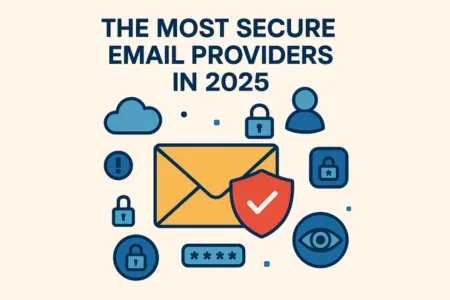
When evaluating secure email providers in 2025, here are the most important features to consider:
- Encryption Type: End-to-end and zero-knowledge encryption are must-haves.
- Jurisdiction: Providers located outside of surveillance-heavy countries (like the US) are preferable.
- Open Source: Transparent code allows security experts to audit the platform.
- Ease of Use: A balance between security and usability is important.
- Multi-Platform Access: Availability on web, desktop, and mobile devices.
- Extra Tools: Encrypted calendars, contacts, and file storage are a plus.
Secure Email vs. Regular Email: What’s the Difference?
| Feature | Secure Email Provider | Regular Email Provider |
|---|---|---|
| End-to-End Encryption | Yes | Rarely |
| Data Scanning for Ads | No | Yes |
| Anonymous Sign-Up | Often | Rare |
| Jurisdictional Privacy | Yes (Switzerland, Germany, etc.) | Limited (US-based) |
| Additional Privacy Tools | Yes (encrypted drive, contacts, etc.) | Limited |
Future of Secure Email in 2025 and Beyond
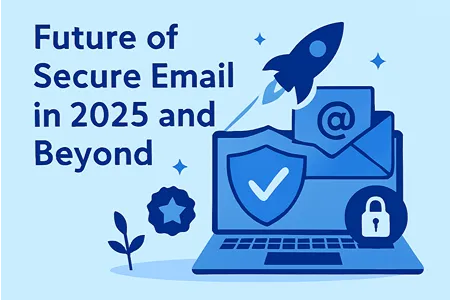
As cyber threats evolve, email providers are adopting AI-powered spam filters, biometric authentication, and decentralized infrastructures. The rise of quantum computing also poses challenges to existing encryption methods, pushing providers to experiment with post-quantum cryptography. By 2025, we see a growing convergence of secure email with broader privacy ecosystems, where email, cloud storage, messaging, and VPN services are bundled under one secure platform.
Choosing the Best Secure Email Provider in 2025
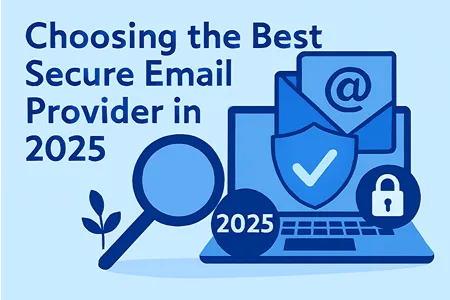
If privacy and security are your top priorities, moving away from mainstream providers like Gmail or Yahoo is important. The most secure email providers in 2025 – Proton Mail, Tutanota, Skiff Mail, Mailfence, StartMail, Posteo, and CounterMail – all offer strong encryption, privacy-focused policies, and user-centric features.
- For best overall privacy and ecosystem integration: Choose Proton Mail.
- For encrypted storage and full mailbox encryption: Go with Tutanota.
- For decentralized Web3-style communication: Opt for Skiff Mail.
- For business-grade digital signatures: Select Mailfence.
- For spam-free online registrations: Use StartMail.
- For anonymous registration: Pick Posteo.
- For hardcore privacy and tech-savvy users: Consider CounterMail.
By aligning your choice with your personal or business needs, you’ll enjoy a safer and more private email experience in 2025.
FAQs on Secure Email Providers in 2025
Yes, Proton Mail remains a leader in secure email due to its end-to-end encryption, Swiss jurisdiction, and expanding ecosystem of privacy tools.
When choosing a secure email provider, look for end-to-end encryption, zero-access architecture, support for two-factor authentication (2FA), open-source transparency, and data privacy laws in the provider’s jurisdiction. Additional features like encrypted contacts, calendars, and secure file sharing can also be valuable.
Yes, most secure email providers allow you to send and receive messages from non-encrypted services. However, the level of encryption depends on whether the recipient is also using a secure platform. Many providers offer password-protected emails for external recipients.
While secure providers prioritize privacy and encryption, they also include strong spam filters and phishing detection. Still, no system is 100% foolproof, so users should remain cautious and enable security features like link previews and suspicious login alerts.

